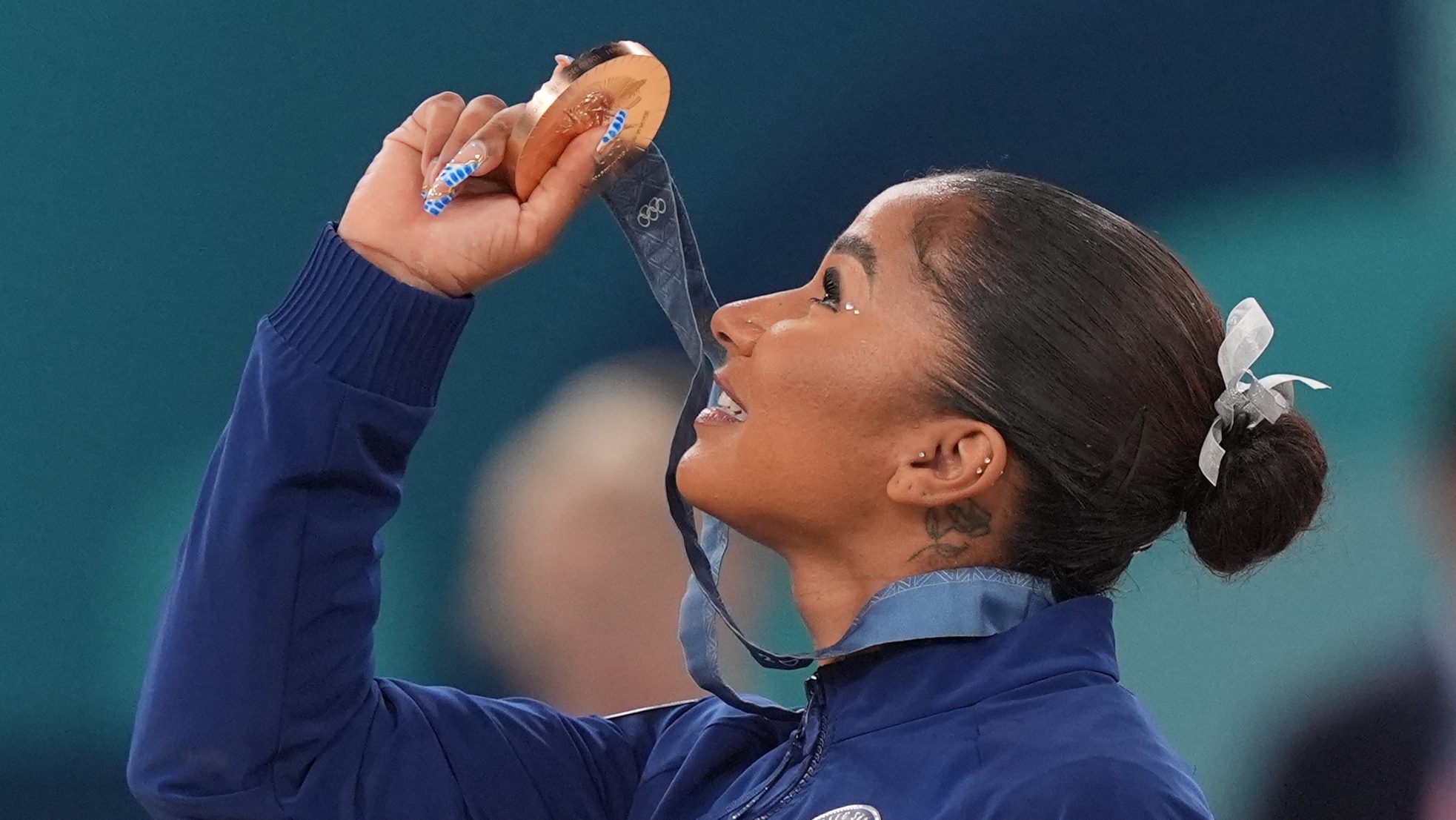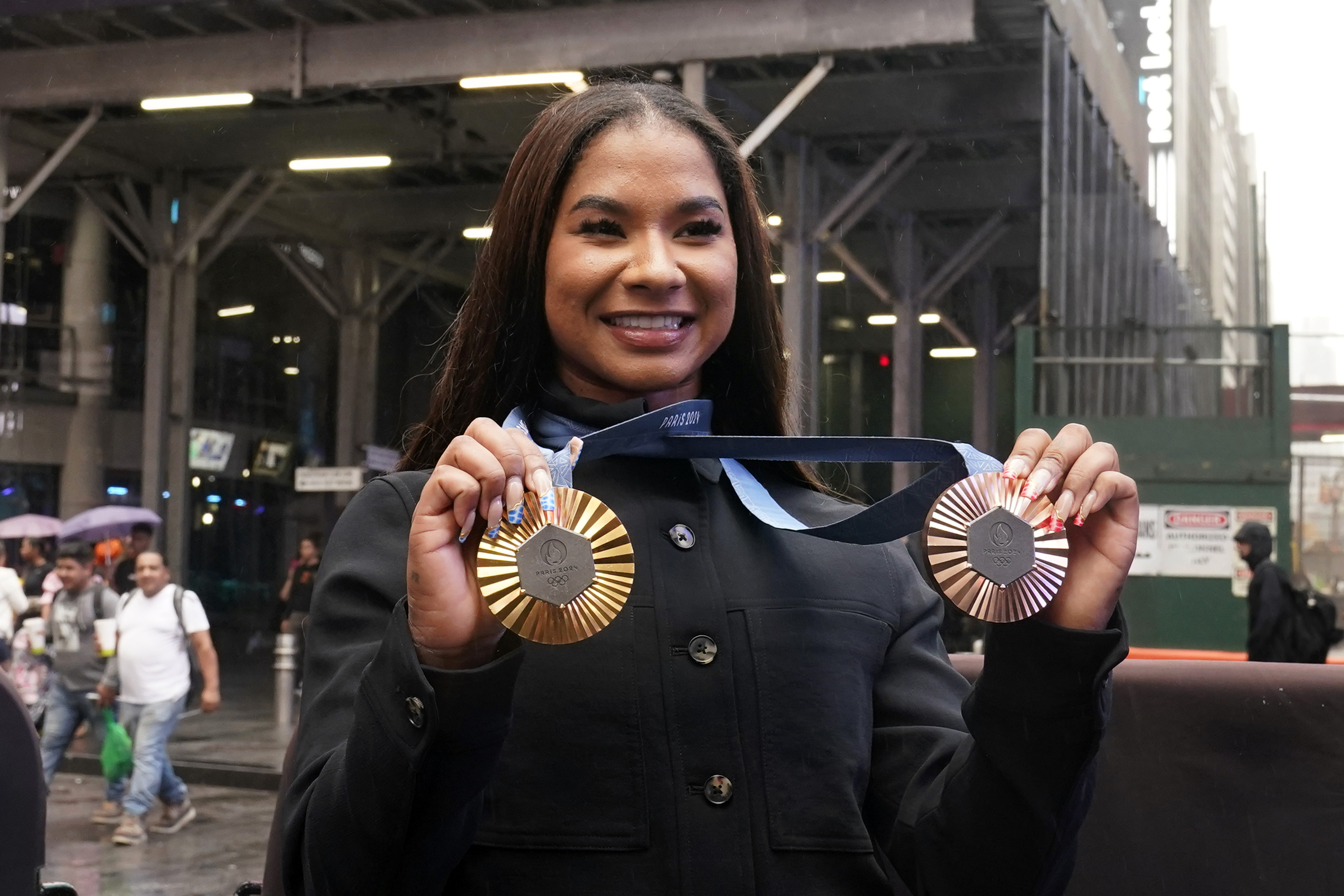The International Olympic Committee’s decision to strip U.S. gymnast Jordan Chiles of her floor exercise bronze medal is the sport’s highest-profile controversy since the 2000 Olympic Games in Sydney, the site of the biggest scandal in Olympic gymnastics history.
The IOC found Sunday that a scoring inquiry by the U.S. was invalid, echoing a ruling by the Court of Arbitration for Sport, or CAS, which found that the scoring appeal from Chiles’ coach was filed four seconds too late. Romania’s Ana Bărbosu, 18, was retroactively deemed the floor exercise bronze medalist.
Chiles is the only gymnast in history to be stripped of an Olympic medal for reasons other than age falsification or failed drug tests. Some of the problems in Sydney lay elsewhere.
Hamid Gharavi was president of the panel that decided the Chiles case, documents show, and he has represented Romania in other cases, according to his company's online bio, which could raise questions about the decision that elevated a Romanian athlete.
We've got the news you need to know to start your day. Sign up for the First & 4Most morning newsletter — delivered to your inbox daily. Sign up here.
Gharavi said Tuesday that he is not allowed to comment on the Chiles case or any other case. The Court of Arbitration for Sport has not responded to NBC News' request for comment, but that court told The New York Times that Gharavi disclosed his work with Romania, and none of the parties involved objected to him as chair, so it had no reason to remove him.
At the Sydney Games in 2000, the vaulting table was set to the incorrect height during the women's all-around final, putting the world's best gymnasts in danger and jeopardizing the validity of the competition's results.
The table was set nearly 2 inches lower than required. Seventeen gymnasts, including gold-medal favorite Svetlana Khorkina, of Russia, crashed their vaults before officials in the arena pulled out tape measures and discovered the error.
“I’ve never seen anything like it, even at a little, local meet,” then-U.S. women’s program coordinator Kathy Kelly told ESPN at the time. “It’s bizarre, is what it is.”
All competitors who vaulted on the incorrect setting were given a second chance, but for Khorkina, the damage had already been done.
After Khorkina landed a disastrous vault on her knees, she suffered another fall on her second event, the uneven bars. When the equipment error was revealed, she declined to repeat her vault.
Multiple gymnasts in Sydney were eventually stripped of their medals for reasons unrelated to the equipment disaster.
The gymnast who won the all-around gold medal, Andreea Răducan of Romania, was stripped less than a week later after she tested positive for a banned substance. A prohibited stimulant called pseudoephedrine was found in her system on the day of the final, which Răducan, who was 16 at the time, unknowingly ingested in the form of cold medicine provided by the team doctor.
Her teammate Simona Amânar, who initially earned silver, was then awarded the all-around title. Răducan retained the gold medal she won in the team event earlier in the Games, as well as an individual vault medal she won three days later.
Fifteen years after her positive test, Răducan met with IOC President Thomas Bach in an attempt to get the medal back. Her request was denied, but Bach shared his sympathies for her.
“This decision was very tough for Andreea and was not easily taken by the IOC at the time,” Bach said in a news release. “It shows how strict our anti-doping rules are by having to apply the principle of strict liability of the athlete."
He added: "On the other hand I feel a great deal of sympathy for her because she has to suffer from a mistake by her team doctor. Even more so because this happened at the age of 16, when as an athlete you have absolute confidence in your medical team.”
The only other instance, until Chiles, of an Olympic gymnastics medal being retroactively stripped, also occurred at the 2000 Sydney Olympics, but it came to light only a decade later.
The Chinese team was stripped of its bronze medal after one of its gymnasts, Dong Fangxiao, was found to have been too young to compete.
Gymnasts competing at the Olympic level must be 16 at the Games or turn 16 within that calendar year.
Dong's falsified age was revealed when she tried to register for the 2008 Beijing Games with a different birth year.
The U.S. women's gymnastics team, which initially finished fourth in 2000, was awarded the bronze medal in 2010 after the Chinese team was disqualified.
On Sunday, USA Gymnastics said it submitted an appeal of the CAS ruling in Chiles' case, including a letter and video evidence that it said proved the inquiry of Chiles' score was filed within the one-minute deadline.
A response from CAS on Monday, however, muddied the path to an appeal.
“USA Gymnastics was notified by the Court of Arbitration for Sport (CAS) on Monday that their rules do not allow for an arbitral award to be reconsidered even when conclusive new evidence is presented,” USA Gymnastics said in a statement. “We are deeply disappointed by the notification and will continue to pursue every possible avenue and appeal process, including to the Swiss Federal Tribunal, to ensure the just scoring, placement, and medal award for Jordan.”
CAS and the IOC have established a precedent for awarding multiple Olympic medals in situations involving errors beyond athletes' control.
In 2022, Switzerland’s Fanny Smith and Germany’s Daniela Maier were both awarded bronze medals in ski cross at the Beijing Winter Games after a lengthy review period and subsequent dispute.
Bărbosu, who is set to receive her medal Friday, said in a statement Sunday that "athletes are not to be blamed" for the controversy.
Chiles stepped back from social media after Saturday's CAS ruling, citing a need to protect her mental health. She has not shared any plans to return her medal.
This story first appeared on NBCNews.com. More from NBC News:





